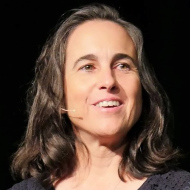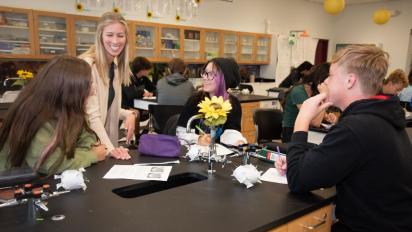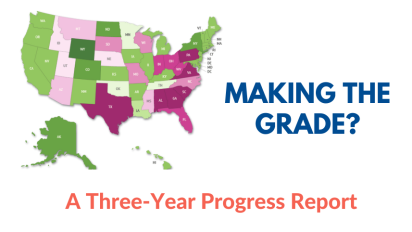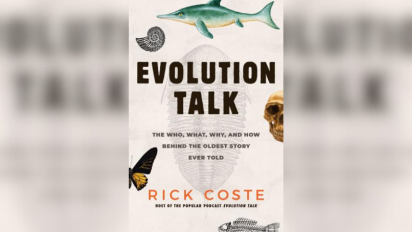[Review] Evolution Talk: The Who, What, Why, and How Behind the Oldest Story Ever Told
"This is not your dry run-of-the-mill thesis on evolution," writes our reviewer, Bertha Vazquez, director of the Teacher Institute for Evolutionary Science.
Evolution Talk by Rick Coste is a colorful journey through the history of evolutionary theory. Evolution is considered by many to be the greatest story ever told, and, as stated in the book’s introduction, it is the origin story of our own existence. It becomes obvious in the book’s first pages that Coste possesses great enthusiasm for this important topic and delivers his information with the passion it deserves.
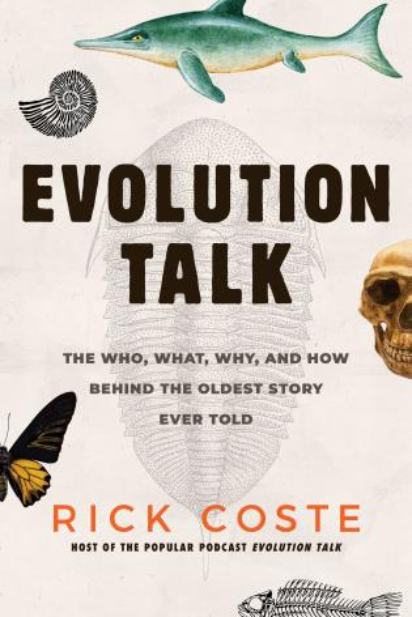
Divided into four parts, Evolution Talk starts by introducing its readers to the often-overlooked thinkers who came before Darwin. Coste paints a human picture of how their work was ignored, attacked, or celebrated across the centuries. Each thinker inspired some of their peers while angering others. This section provides an excellent context for the history-making ideas that seamlessly follow in part two.
Part two takes a deep dive into the lives and groundbreaking work of Charles Darwin and Alfred Russel Wallace. Coste pays close attention to Darwin’s own life, for he received both tremendous opposition and admiration after the publication of On the Origin of Species. Coste does not shy away from discussing Darwin’s own doubts about the existence of God or his concern for the blowback he would receive once his work was published. A 21st-century person can certainly relate to Darwin’s fear of being ostracized from society for his “dangerous” ideas. Unsurprisingly, Darwin suffered from anxiety and intestinal distress in his later years.
In part three, Coste provides the reader with an absorbing history of life on Earth in just 70 pages, concluding by presenting several evolutionary concepts developed decades after the contributions of Darwin and Wallace. The misconception that seeing the world through the lens of evolution makes for a cold, harsh view of life is addressed in chapter 34, “Altruism.” Good guys can indeed finish first. Cooperation and kindness are beneficial behaviors inherited by the individuals of many species, including humans.
In part four, Coste discusses contemporary concepts such as evolutionary psychology and the future of evolution. Chapter 44 is dedicated to the predictive power of evolution. The ability of a theory to help determine future outcomes is an important scientific concept. And speaking of theories, as a science teacher myself, I deeply appreciated chapter 42, “Just a Theory.” Most biology teachers would agree that the common use of the word “theory” makes teaching evolution to students particularly difficult. Perhaps we could hand a copy of Evolution Talk to anyone who claims evolution is “just a theory.”
While an important addition to the library of anyone who loves evolutionary biology, Evolution Talk would also be an excellent gift choice for introducing the science of evolution to a novice on the subject. This is not your dry run-of-the-mill thesis on evolution; the writing is witty and amusing, reflecting the jaunty style of Coste’s podcast of the same name. It’s a very enjoyable read.
Evolution Talk ends the same way it began, with Coste conveying his awe for the idea that changed how we see the world. “Ask yourself if it would be too bold to consider all life came from one single filament, as Erasmus Darwin did so many years ago,” he writes. “You can breathe a sigh of relief, for others have considered it for you and have followed the path of that filament through time. It leads to you, and to the squirrel whose tail nervously twitches at your presence, as well as the acorn she holds” (p. 240). If readers do not begin the book with a sense of wonder about this extraordinary topic, they will certainly finish it with one.

